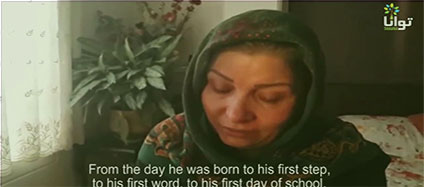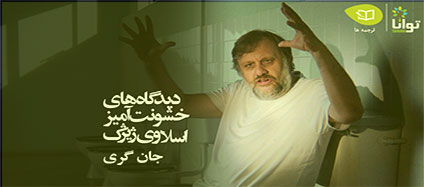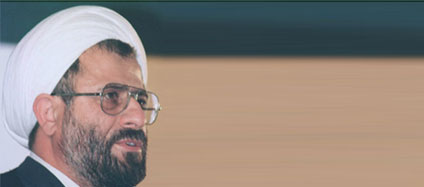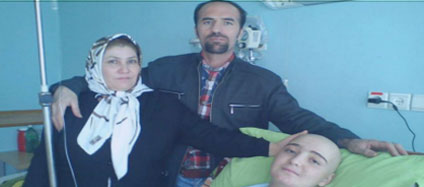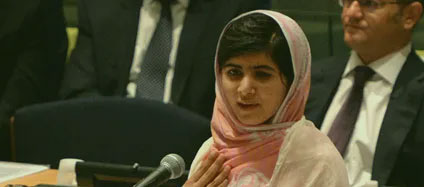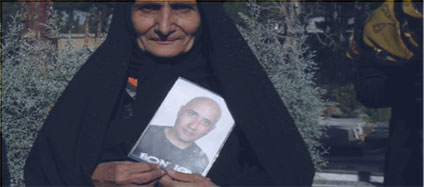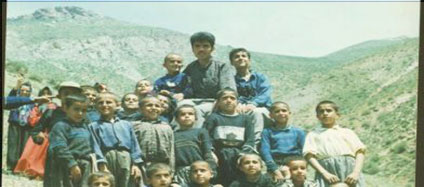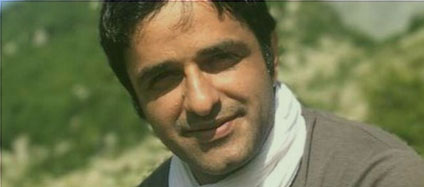On July 5, 2017, a delegation of some 45 ambassadors visited Tehran’s Evin Prison at the official invitation of government bodies. In the course of a carefully pre-planned review, prison officials highlighted “live music from a Ugandan singer” and “English-language banter” (Radio Farda) among other amenities available to prisoners at Evin. The facility is in fact one of country’s most notorious, and dozens of prisoners of conscience are currently held within its walls. The Indonesian ambassador later told Iranian state media: “I was shocked during the review. I was saying that the conditions are so good here that some prisoners might prefer to stay.” The Portuguese ambassador reported: “I didn’t expect conditions to be so good: the review really affected me.”
A few days later, political prisoners Atena Daemi and Golrokh Iraee – both presently held in Evin’s women’s ward – penned an open appeal to the delegates. Theirs is a brave eyewitness account of conditions at Evin and a vital corrective to the carefully manipulated and censored image Iranian officials put forth during their curated tour and subsequent media campaign. The full text of the statement, in exclusive English translation from Tavaana, appears below:
We received word that a panel made up of 40 ambassadors stationed in Tehran was invited by the Iranian Prisons Organization and the Islamic Human Rights Institute to inspect Evin Prison on July 5th. Even when we invite people into our private homes, it’s a matter of course that we’d pretty themup to be in the best possible condition. It’s also a matter of course that this very space where sentences are presently carried out – the site of executions and firing squads for prisoners in the 1980s – has now, in the year 2017, been turned into a reception hall for 40 ambassadors.
We address ourselves to you respected ambassadors, who were invited to visit the parts of Evin Prison the gentlemen in charge desired. All of you know, as we do ourselves, that for some time now Iran and the Prisons Organization in particular have been affected by sanctions owing to egregious violations of human rights. For years now, Iran has not permitted the UN Special Rapporteurs (previously Mr. Ahmed Shaheed, presently Ms. Asma Jahangir) to enter the country and conduct a review. And now, whether or not you’ve wanted it, you ambassadors stationed in Tehran have become bullhorns for Iran’s campaign of deception on the state of human rights.
Are you aware that Evin Prison is in truth made up of several different wards and detention facilities? Were you able to visit Ward 209 (the Intelligence Ministry’s ward), Ward Double A (the ward of the Revolutionary Guard’s Intelligence outfit), and Ward 241 (the ward of the judiciary’s intelligence arm)? Did you see the solitary confinement cells with no windows, no air flow, and no sanitary services? Did you see the blackness of the dark, narrow rooms and pits where they do interrogations? Did they show you the famous grave cells? What about the “fresh air” breaks, where prisoners are lead out blindfolded and shackled, their heads covered? According to Iranian newspapers, you honorable people saw the prisoners’ conditions and the prison’s space and were amazed by how excellent they were! Did you get to talk with a few of the prisoners? Did they inform you of the number of times they’ve been arrested, the lengths of their solitary confinements, the ways they were interrogated, and the varieties of torture, physical and mental, they went through?
Why didn’t they bring you to the ward for women political prisoners – the very place we’re forced to live in? They surely told you Evin doesn’t have a women’s ward, too – indeed a lie as big as the one they told you when they said they have no political prisoners! We know you have not had access, and do not now have access, to the files on even a few of the prisoners so that you might appreciate the depth of the disaster they face – for the authorities have not wanted you to, and do not want you to now. So we’ll now turn to the thing that “amazed” you all! This Ward 4 you inspected: did they tell you how and by whom it was rebuilt and equipped? You should know that the very prisoners who paid a price of millions of tomans for the ward and its construction were, on the day you were present, pulled out of the ward and taken to solitary confinement at Double A on pretexts given by the court and hospital. Until you left, they were forcibly held there so that you wouldn’t see them, and they wouldn’t see you! Did they tell you that Ward 4 is also the ward for prisoners convicted of economic crimes, political prisoners, and gangsters, all together?
The day before you came to Evin, all the newspapers were forbidden from coming into the prison. They didn’t want us aware of what was going on, lest their curtain of illusions somehow fall down and the reality of things become apparent!
They have spoken, and you have spoken, of women’s health services. We’ll speak of it now: of the state of the clinic and mistakes in medication, of the lack of antiseptics and cleaning products excused by “budget shortfalls.” Do you know that a few inmates diagnosed with HIV/AIDS and hepatitis are serving their time here along with other prisoners? Have they told you that, owing to excuses based in religious law, male doctors don’t perform medical exams, injections, or electrocardiograms on women prisoners? Did they say that there’s not a single woman nurse in the whole prison to do these things for us? Do you know that hundreds, perhaps thousands of prisoners here suffer from kidney disease from drinking the prison’s unhealthy water? Did they introduce you to a doctor by the name of “Mast’ar Shahriari”? He’s the doctor who checks up on prisoners’ illnesses just by looking- never with physical examinations. The stamp that would prove his real name is never to be seen on documents, because he’s afraid of the consequences of his mistakes in diagnosing and prescribing, and he wants to keep his true identity from getting out! If only you’d also been able to ride the Evin ambulance during your review, too, to see the lack of necessities inside it!
If only you’d asked your hosts to share with you video taken on Evin’s cameras just two days before your visit: you could have seen the state of the prison and its clinic! You could have seen the prison uniforms, striped yellow for inside the prison and blue for outside! You could have seen the doors, one right after the other, facing the prisoners and even the prison guards. Every shift the soldiers close them and lock them up, and even for urgent exits and transferring critical patients to the hospital, we have to wait for several doors to be unlocked and opened again. I’ll give you an example from the women’s ward: even the “emergency exit” here has three sets of doors and locks on it. Do the math on how long it takes to open each door after all the contacts and coordination needed to get the soldiers and key guys to show up! If only you’d seen how many prisoners sleep on the floor and the rugs in the prayer rooms for lack of beds, the tiniest distance between them!
If only you’d been able to enjoy the food that gets handed out to prisoners! Did you know that we prisoners have to buy our own dairy products, vegetables, fruits, and proteins at prices several times more expensive than normal from the prison’s store? The little bit of monthly rations the prison gives out are spoiled and well past their expiration date! If only they’d given you an account of the skillful business dealings they’ve got underway here, making millions of tomans a month! Did they bring to your attention nonetheless that just a day before your visit, this prison – the largest in Iran – was devoid of any sort of vehicle? The drivers of the special taxis for shuttling prisoners to treatment facilities were on strike over not being paid for months, and they didn’t show up for work!
Did they make you aware of Ward 350 (the abandoned men’s political prisoner ward) or the ward for clerics? Was there talk of the fact that a few prisoners have spent their entire prison terms in solitary confinement in the detention facilities? People like Mohammad Ali Taheri, who’s spent more than five years locked up in solitary cells of the Revolutionary Guard’s Ward Double A? You need to know that despite the claims of Prisons Organization chief Mostafa Mohebi, the prisoners here do not meet with their families in person on a weekly basis, but rather just once a month. You honorable people could have easily learned about Evin’s exact geography from satellite images. You could have gotten your hands on various reports from reliable sources on Evin’s wards and Iran’s other prisons. You could have even followed up on political prisoners, asked to meet with them, and taken action in an informed way during your review in this prison by mentioning their names.
This is an important thing that should have happened and did not. We ask that you respected ambassadors not take part in this campaign of deception about the situation of Iran’s prisons and prisoners. We ask that you not just pay entirely cursory visits to Evin, Qarchak, Fashafayeh, Rajaishahr, and other Iranian cities, so that you can get a true picture of them. There are a countless number of us political prisoners behind bars for having wanted to present a true picture of the chaotic human rights situation in the Islamic Republic of Iran. We have paid a heavy price. Our families have, in different ways, been harassed and persecuted as well. They even hide us from you! We’ve asked that at least something be done to improve prison conditions for inmates. Now we’re in prison, and you honored ambassadors have, by way of a purposeful scheme drawn up in advance, deferred our demand: they’ve used instrumentally the fact that you came to Evin, the biggest prison in Iran, to run newspaper headlines like “Some Countries and Media Outlets Portray Iran’s Prisons Dishonestly and Incorrectly.” They invited you in so that they could use you, and, with smoke and mirrors, label reports from international and human rights organizations on the country’s prisons “baseless and groundless.” You could have, and still can now, done something to improve conditions in Iran’s prisons – so long as you have a true picture of things, and not just a token one made up for show.
We who sign this letter invite you to ask the Prisons Organization and the Islamic Human Rights Institute to authorize UN Special Rapporteur Asma Jahangir to enter Iran, inspect prisons, and meet with political prisoners and social activists!
Atena Daemi and Golrokh Iraee
July 8, 2017

